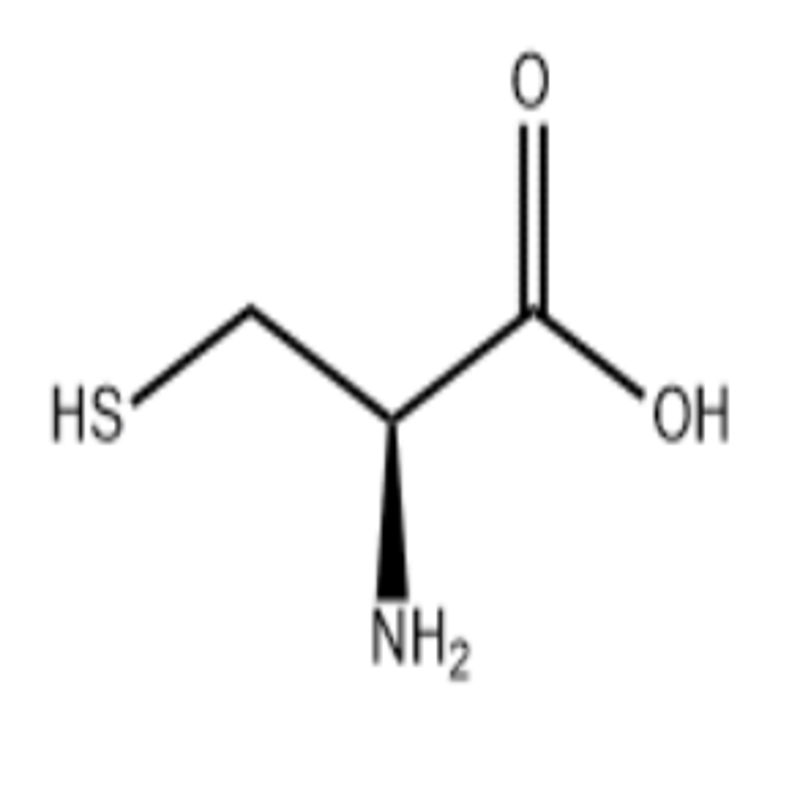With "fine" into the "cell" common gas | key laboratory parade
-
Last Update: 2021-03-13
-
Source: Internet
-
Author: User
Search more information of high quality chemicals, good prices and reliable suppliers, visit
www.echemi.com
(1) Gao Daming Researcher(2) Zeng Yi Researcher (left) with Dr. Wang Daisong(3) Yang Wei Research Group won the Shanghai Science and Technology System Youth May Fourth Medal (collective)(4) Li Jinsong Researcher (first from right) to guide students (5) Members of the 2nd Academic Committee of the National Key Laboratory of Cell Biology pose with laboratory PI (6) National Key Laboratory of Cell Biology at the opening ceremony
At an academic conference held by the Cold Spring Harbor Laboratory in the United States, young Chinese female scientist Zeng Yi stood on the podium and shared her unresoled experimental data. It's an unexpected science story, and everyone on stage listens with relish. At the end of the report, Zeng Yi enthusiastically said: "Welcome to repeat our experiment!" As
off the podium, she quickly received an olive branch from the editor of a well-known academic journal: "It's a great job, give it to us!" "
" until this moment, the stone in my heart did not fall to the ground. Zeng Yi laughed. Prior to that, she feared that the achievement was too "avant-garde" to be accepted by her peers, which carefully orchestrated the gorgeous "drama". In March 2020, the results were published in the journal Cell.
"When you have the most beloved job, do 100% for it -- that's the most important thing I've learned in the National Key Laboratory of Cell Biology." Zeng Yi said.Zengyi is a researcher at the Center for Excellence and Innovation in Molecular Cell Science of the Chinese Academy of Sciences (Institute of Biochemistry and Cell Biology, biochemistry and cellology). Her team first did breast cancer research. In an animal experiment, they "by the way" scanned other organs in the mouse model and accidentally found traces of islet adult stem cells.
"people were surprised because the prevailing view in the academic community at the time was that adult stem cells did not exist in the islet. Zeng Yi told China Science Daily, "Some people even think that people are prone to diabetes because there are no adult stem cells, resulting in islet β cell loss can not be effectively replenished." There
430 million people with diabetes worldwide, a third of whom are in China. The deficiency β insulin secretion caused by cellular insanity is one of the common characteristics of type 1 diabetes and type 2 diabetes. Traditional treatments - taking medication and injecting insulin can only be "cured". In order to "cure the problem", it is necessary to regenerate healthy islet cells in the human body through methods such β transplantation. However, the reality of islet supply shortage seriously restricts the clinical use of this method.
can we keep getting islet cells that can be β transplanted? The hope lies in two types of stem cells: embryonic stem cells can be directed to differentiate into islet β cells, but this method is complex and has certain tumor risks, and the use of adult stem cells in-body preparation of functional organs, the safety and simplicity are much better.
zeng art team, on the basis of proving the existence of islet adult stem cells, further explored and established a culture system for islet-like organs in mice. In this new culture system, each organ has a variety of differentiated cell types that are close to the proportion in the islet, which is an excellent in-body model for studying all types of cells in the islet, and can also be used for in-body screening of drugs.
are currently working with hospitals in Shanghai to continue to look for islet adult stem cells in the human body and are working to develop functional human islet cells β inostrophy.
"Cell" paper, but also Zeng Art research team to step foot in the islet research field began. All pancreas or islet experiments are brand new to them. Wang Daisong, the first author of the paper and a doctoral student at the Institute of Biotechnology and Cells, completed the scientific research task by self-studying methods from the literature, or by seeking advice from various laboratories close to his neighbors.
"Prior to this, our research team had never had a background in islet research, so it was difficult for us to apply for funding during the initial phase of the project, and it was after internal discussions that we decided to support us." Zeng said the work benefited to a large extent from the "autonomous research and development projects" of bio-chemicals and cells.
Because of some highly innovative and even some risk of failure, it is difficult to obtain outside funding at an early stage, bio-chemical and cellular institutes have set up special independent research and development projects, so that these work can be supported in their infancy, so as to foster more and better original results.the pursuit of innovation has been permeated in the blood of the National Key Laboratory of Cell Biology.
the laboratory was established in 1997 as the Key Laboratory for Molecular Cell Biology of the Chinese Academy of Sciences. Over the years, the
laboratory has produced a large number of high-quality scientific research results, and two jobs have been selected by the Ministry of Science and Technology in 2007 and 2009 "Top Ten News of Basic Research in China".
In 2006, the laboratory participated in the national "national priority" evaluation as a "substitute member" with excellent results, in 2011 was approved by the Ministry of Science and Technology to set up a national key laboratory, in 2013 through acceptance, in the 2016 national key laboratory assessment in the field of biology and medicine, the national key laboratory of cell biology was rated "excellent".
Jinsong, director of the National Key Laboratory of Cell Biology, who returned to China in 2007, has personally experienced the development of the laboratory from "hospital weight" to "national weight". But he said, "I don't feel like it's changed." "
" because we have been enjoying the treatment of national key laboratories. Li Jinsong said, "In bio-chemical and cellular institutes, you will never be treated differently because of 'hospital weight' or 'national weight'." It is this attitude, in order to retain talent, in order to develop. In
Li Jinsong's view, the style of the National Key Laboratory of Cell Biology is the style of biochemistry and cells, that is, the "pursuit of excellence".
"Don't say our job is 'from 0 to 1', but we did create a lot of directions that we didn't have before." "The key is how big we can go in these directions in the future. Li himself is one of the pioneers of artificial sperm cell technology and the author of the genome labeling program.
In 2012, li Jinsong's research team, in collaboration with Xu Guoliang of the National Key Laboratory of Molecular Biology, established for the first time isolated male monopolyxel embryonic stem cells and demonstrated that these cells could replace sperm, "fertilized" ovarian cells and produced semi-cloned mice.
at the time, this artificial sperm cell produced offspring in mice with low efficiency. Over the next few years, they obtained artificial sperm cells that efficiently supported the reproduction of semi-cloned mice by removing two imprint-regulating regions.
"It took us a few years to develop 'artificial sperm cells' from a concept into a available technology, " he says. Li Jinsong said.
based on the application of artificial sperm cell technology, they further proposed the "genome labeling program."
more than 22,000 genes that encode proteins have been revealed since the completion of the Human Genome Project in 2003. However, due to technical bottlenecks, more than half of the proteins have never been studied.
Li Jinsong et al.'s ambitious plan is to use artificial sperm cell technology to add the same label to all proteins, and then obtain a genome-wide tagged mouse bank of more than 20,000 proteins through egg injections to complete a physiological tissue expression spectrum analysis of more than 20,000 labeled proteins.
the program has been supported by the
Strategic Pilot B and shanghai Science and Technology Commission projects, and has established a bio-chemical and cell genome labeling program research and development center. The program is expected to complete a genome-wide "artificial sperm cell" library of more than 20,000 strains within five to 10 years, and to obtain more than 5,000 important protein label mice to form an internationally influential experimental animal research and development platform. In the future, the program may also be used to find new targets for cancer treatment, etc., and is expected to promote the development of precision medicine. National Key Laboratory of Cell Biology is a scientific research institution that focuses on basic research. But many of the results here are moving step by step towards application and clinical.
"It's not a coincidence. "The two major research directions in our lab, 'cell behavior and destiny-determining', 'stem cells and individual development', are themselves easily linked to disease, " said Yang Wei, a researcher at the Institute of Biotechnology and Cells. For researchers, basic research to a certain extent, naturally, they hope to push their findings to the ground. The
Yang's research team is the "number one cancer killer" - lung cancer research. Traditional surgery and postoperative chemotherapy can control primary tumors well, but there is often no way to metascess tumors. Metastasis is an important reason for the high mortality rate of lung cancer.
have long been found that tumor cells tend to exhibit different metabolic characteristics than normal cells. Starting from a metabolic point of view, Yang's team locked in a small molecule in the metabolic path of glycolic acid, UDP-Glc, and found that it had the function of inhibiting tumor metastasis.
because UDP-Glc is an endo-endo-small molecule present in normal tissues of the human body, the toxic side effects are relatively low, and it is expected to intervene in lung cancer metastasis by oral and intravenous injections.
has applied for a diagnostic and therapeutic patent for the study, and the kit is under development.
any study from the foundation to the application means persistent deep farming. This requires not only the calming of researchers, but also the steady support of all parties.
" bio-chemical and cells are very powerful in this regard. "Whether it's financial support or an appraisal system, it gives us enough time to realize what we want to do and encourages us to do something more influential. "
at the Institute of Biotechnology and Cells, each new institute researcher has a stable support period of up to six years. During this period, there are no strict assessment indicators other than regular reporting. At the end of 6 years, it is only on the basis of the overall performance of the researchers to determine whether it is suitable to stay here.
I came back in 2013 and just won the 'death-free gold medal' last year," he said. At first there were some slugs, but I soon found that after 6 years of cultivation, but also through their own and team experience, we have been able to leave the laboratory umbrella, in the broader world to fight the wind and rain. Yang said.
Li Jinsong said that in the National Key Laboratory of Cell Biology, every researcher has a spirit, that is, to do their work in depth and thorough. And the laboratory is also in a variety of subtle care of this spirit.
this spirit of the National Key Laboratory of Cell Biology, it is thought that more results will be made from the foundation to the application, from the cell to the clinic, from the laboratory to the world. his six-year postdoctoral career in the United States, Gao returned to the
Institute of Biogenics and Cells in 2012 to become a researcher and set up his own research team.
when he was studying here, the lab was also called the Key Laboratory of Molecular Cell Biology of the Chinese Academy of Sciences. When he returned, it had just been branded the National Key Laboratory for Cell Biology.
"It was an infectious time. The institute is thriving and the laboratory is full of vitality. Gao said. He had a chance to stay in the United States, but he felt deeply that he should return in the long run.
"I like the cultural heritage here, and I like the working atmosphere here. It's nice to see the teachers who have helped you, to see your familiar colleagues and friends. "For Gao Daming, it's a place of belonging - "as soon as you walk into the lab building, the whole person relaxes."
in the past few years, Gao Daming and Ji Hongbin researchers have collaborated to reveal a new mechanism for the metastasis of small cell lung cancer, and in collaboration with academician Yu Jia of Sun Yat-sen Hospital, affiliated with Fudan University, carried out Chinese group liver cancer cohort studies... Doing what he thought was meaningful every day, he knew he had the right decision to come back.
not only Gao Daming, several researchers in the interview showed deep feelings for biochemistry and cells, the national key laboratory for cell biology.
Li Jinsong said, "You ask me what I have the most feelings for?" I have the most feelings for the researchers here, our research institutes and key laboratories are very united in the human atmosphere. "
came back in 2010 and witnessed every victory in the National Key Laboratory of Cell Biology. Evaluation of excellence, approved national weight, completion of acceptance ... Every time I drink celebrated wine, I was proud and proud from the bottom of my heart!
Yang said: "Biochemistry and Cell Institute and the National Key Laboratory of Cell Biology have a very good support strategy for young scientific research personnel, innovation research work has a great tolerance, so that we can do what we want to do with confidence."
's words are particularly intriguing: "It's not so much what the National Key Laboratory for Cell Biology does as it does that doesn't violate the laws of scientific development." Conform to the laws of science, respect for the spirit of science, so simple, but let everyone can play their own wisdom. The
scientific research work, it is doomed to rely on professional scientific research institutions, rely on the necessary scientific and technological platform, rely on good cooperation and smooth communication. Only when research institutes and laboratories can adequately meet the needs of researchers will we truly recognize this place;
the story of the National Key Laboratory of Cell Biology makes people see once again that for a scientific research institution, financial support, equipment platform and other hardware is important, but the cultural atmosphere, mental outlook and other "soft power" is also not to be underestimated. The ideal laboratory, perhaps is both the warmth of the family, but also the freedom of the blue sky. (Li Chenyang) National Key Laboratory of Cell Biology, based on the Center for Excellence and Innovation in Molecular Cell Science of the Chinese Academy of Sciences, was approved by the Ministry of Science and Technology in October 2011 and completed construction acceptance in June 2013.
National Key Laboratory of Cell Biology focuses on the signal network and mechanism of cell activity to clarify the parts, interrelations, regulatory mechanisms, and relationships with disease of cell proliferation, differentiation, apoptosis, movement and other basic life activities and their molecular regulation networks.
cell biology
This article is an English version of an article which is originally in the Chinese language on echemi.com and is provided for information purposes only.
This website makes no representation or warranty of any kind, either expressed or implied, as to the accuracy, completeness ownership or reliability of
the article or any translations thereof. If you have any concerns or complaints relating to the article, please send an email, providing a detailed
description of the concern or complaint, to
service@echemi.com. A staff member will contact you within 5 working days. Once verified, infringing content
will be removed immediately.







